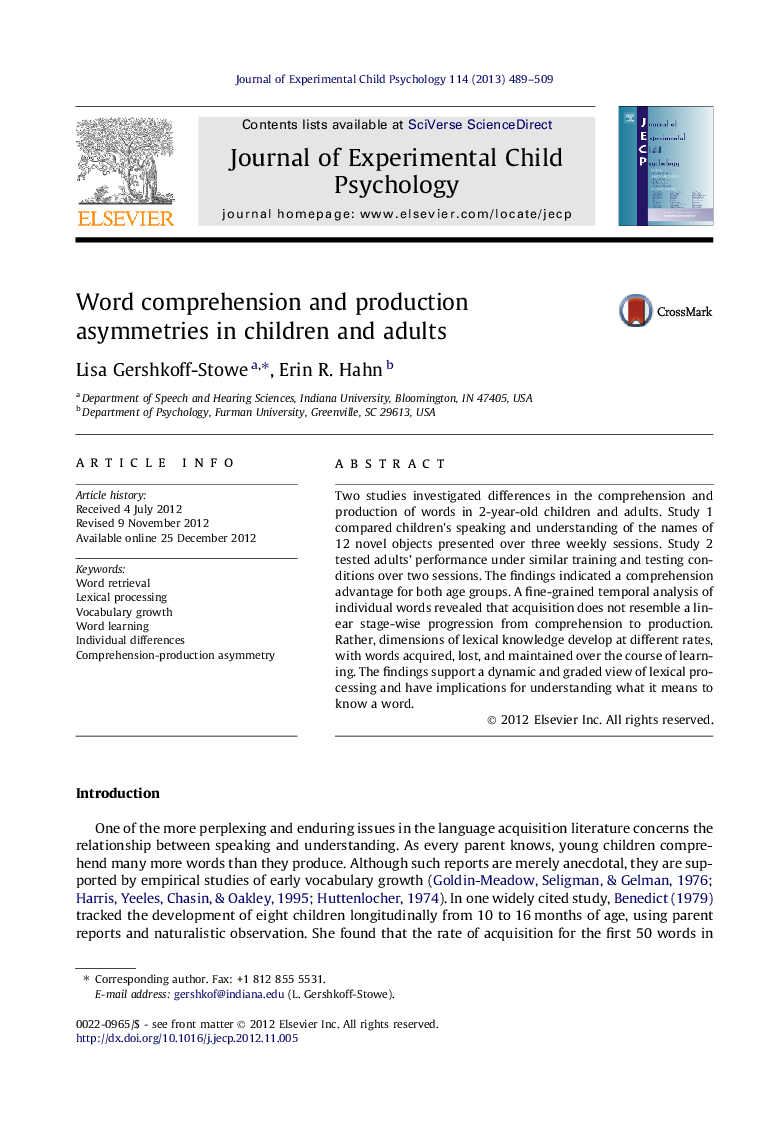| Article ID | Journal | Published Year | Pages | File Type |
|---|---|---|---|---|
| 918121 | Journal of Experimental Child Psychology | 2013 | 21 Pages |
Two studies investigated differences in the comprehension and production of words in 2-year-old children and adults. Study 1 compared children’s speaking and understanding of the names of 12 novel objects presented over three weekly sessions. Study 2 tested adults’ performance under similar training and testing conditions over two sessions. The findings indicated a comprehension advantage for both age groups. A fine-grained temporal analysis of individual words revealed that acquisition does not resemble a linear stage-wise progression from comprehension to production. Rather, dimensions of lexical knowledge develop at different rates, with words acquired, lost, and maintained over the course of learning. The findings support a dynamic and graded view of lexical processing and have implications for understanding what it means to know a word.
► Both toddlers and adults show a word comprehension–production asymmetry. ► Children’s word learning is characterized by considerable instability. ► Variability may reflect growth in retrieval processes in a rapidly changing lexicon.
